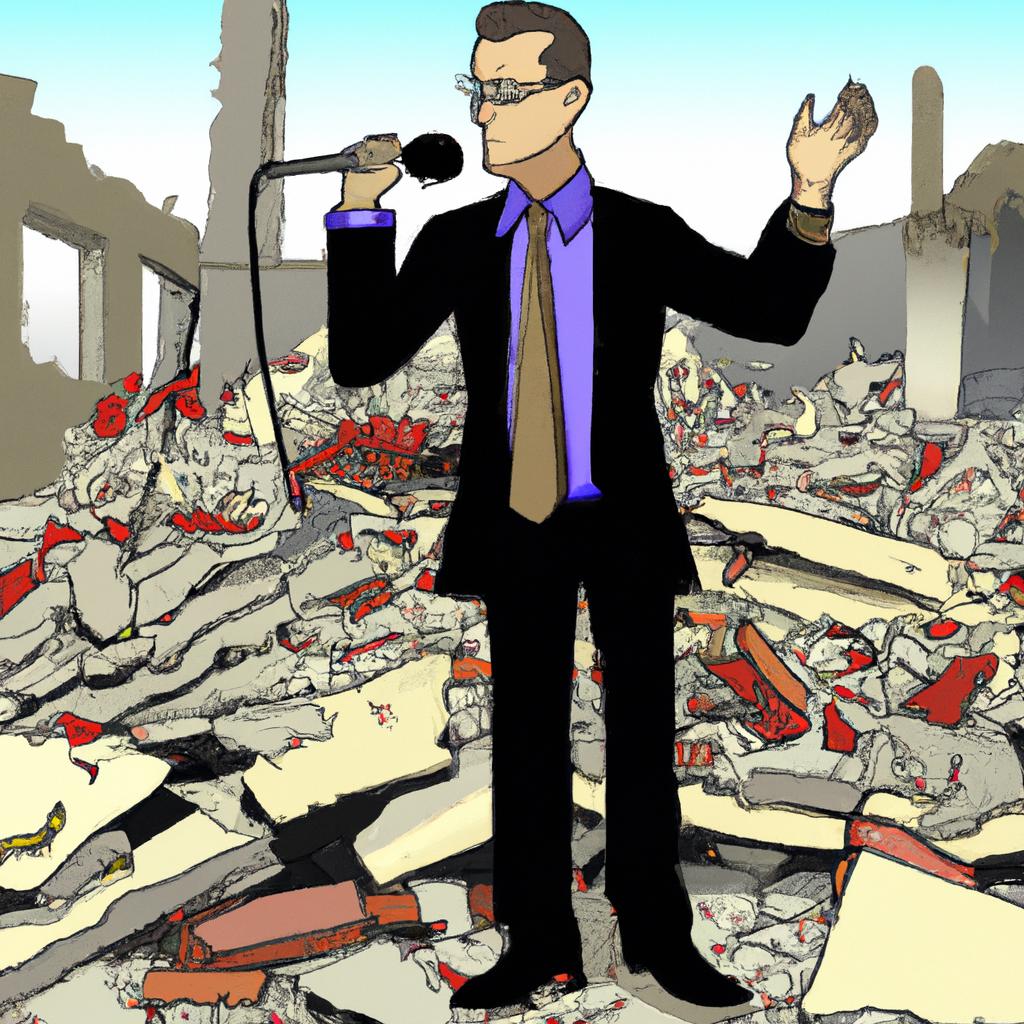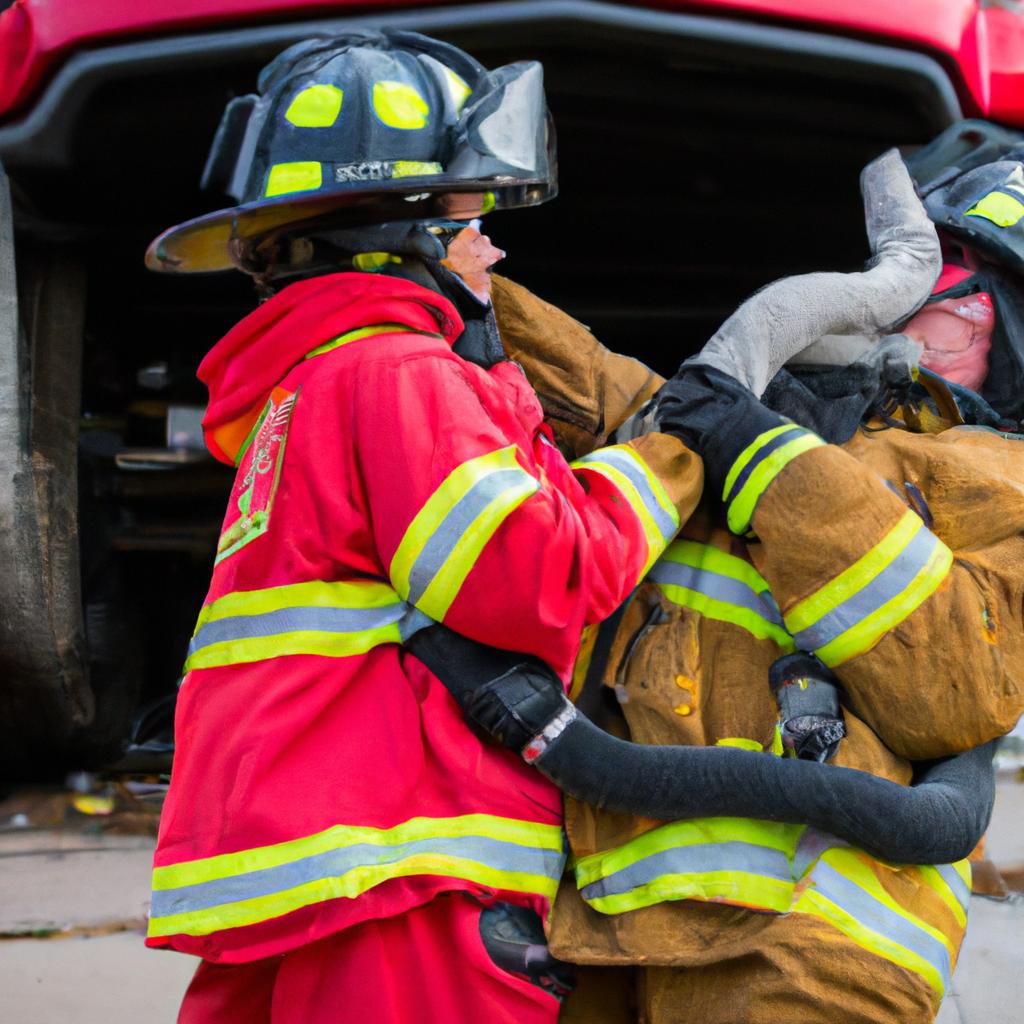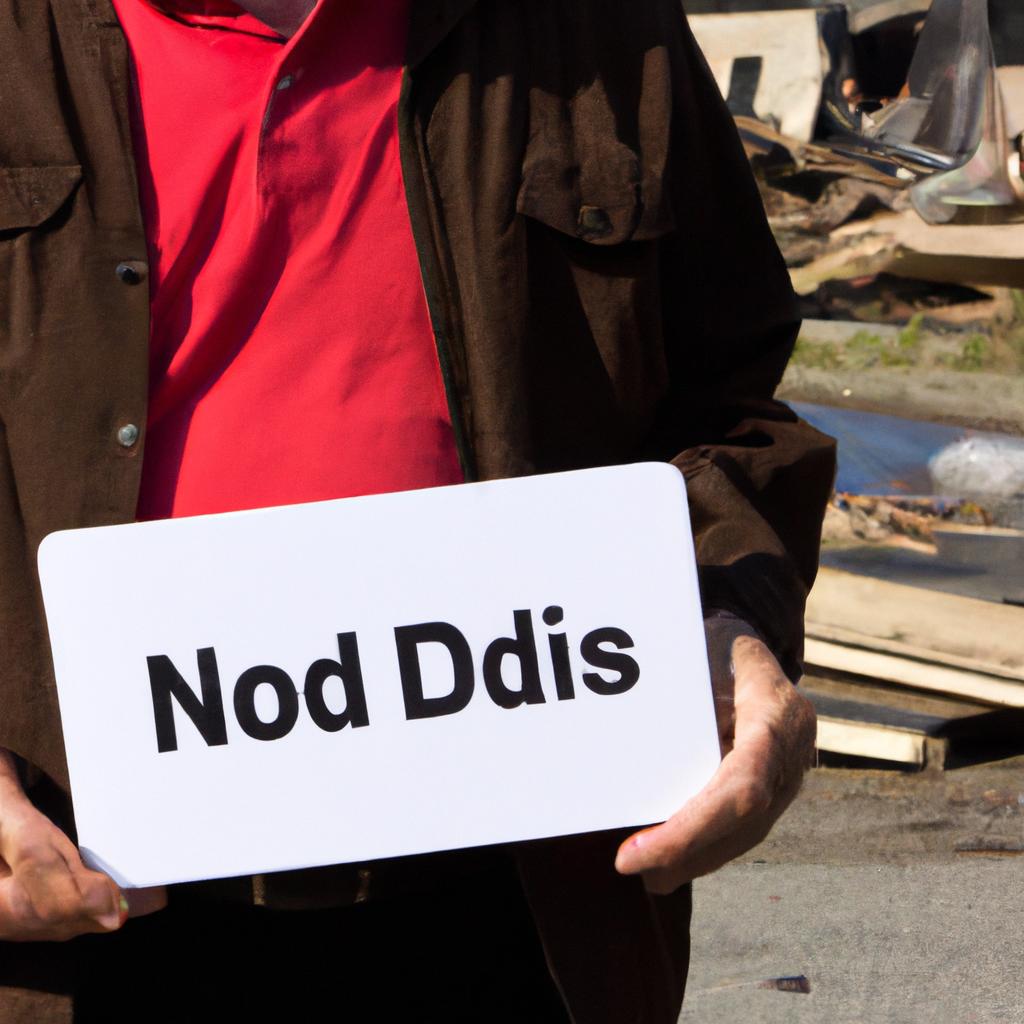Disasters wreak havoc and chaos, leaving a trail of destruction in their wake. In the aftermath of such events, accurate reporting is crucial for providing the necessary help and resources to survivors. However, some media outlets have been guilty of downplaying the severity of a disaster’s impact by using misleading statements like “no one died.”
The phrase “no one died” is often used in disaster reporting to indicate that there were no fatalities. At first glance, this may seem like a positive outcome. However, the reality is much more complex and nuanced. Using this statement can minimize the trauma experienced by survivors and their loved ones, and hinder disaster response efforts.
The Psychological Impact of Disasters

Disasters not only cause physical damage but also have a profound psychological impact on survivors and their loved ones. The emotional toll can be severe and long-lasting. Survivors may experience a range of emotions, including fear, anxiety, despair, and post-traumatic stress disorder (PTSD).
When media outlets use the “no one died” statement, they fail to acknowledge the devastation and loss that survivors have experienced. Such statements can make survivors feel as if their experiences are not valid or important, perpetuating feelings of isolation and hopelessness.
Recognizing the emotional toll of disasters and providing support is crucial. Accurate reporting that acknowledges the full impact of a disaster is an essential first step towards providing the necessary support. By understanding the psychological impact of disasters, we can appreciate the importance of accurate reporting that does not minimize survivors’ trauma.
The Importance of Accurate Reporting

The Role of Media in Disaster Reporting
Media outlets play a crucial role in disseminating information about disasters to the public. They are responsible for reporting accurate information and providing updates as situations unfold. However, in their haste to be the first to report breaking news, media outlets can sometimes jump to conclusions or report unverified information. This can lead to confusion and hinder disaster response efforts.
The Ethical Responsibility of Journalists
Journalists have a responsibility to report accurate information, avoid sensationalizing or downplaying the severity of a disaster’s impact, and verify their sources. By doing so, they can prevent the spread of misinformation and provide the public with the information needed to make informed decisions.
The Dangers of Misleading Statements
Using misleading statements like “no one died” can have serious consequences in disaster situations. It can lead the public to believe that everything is under control and that there is no need for further action. This hampers disaster response efforts and delays the provision of necessary resources to survivors. It also minimizes the trauma experienced by survivors and their loved ones, who may feel that their suffering is being ignored or dismissed.
Accurate reporting is crucial in disaster situations. By providing the public with accurate and timely information, journalists can prevent confusion and panic, ensuring survivors receive the help they need to recover.
The Dangers of Underreporting

Consequences of Underreporting Deaths in Disasters
Underreporting deaths in disasters is common and has severe consequences. One significant consequence is a lack of resources and support for survivors. If the true extent of the disaster is not known, it becomes challenging to provide aid to those in need.
Underreporting also leads to a lack of accountability. Accurate reporting is essential to hold those responsible accountable for their actions. In some cases, it can lead to a lack of justice for the victims and their families.
Another consequence of underreporting is the false sense of security it creates. If the true extent of the disaster is not known, it becomes difficult to prepare adequately for future disasters. Lives are put at risk, and preventing future incidents becomes harder.
Acknowledging the True Impact of Disasters to Prevent Future Incidents
Acknowledging the true impact of disasters is crucial in preventing future incidents. Accurate reporting helps identify areas of vulnerability and enables organizations and governments to take steps to mitigate risks. By understanding the true impact of disasters, better disaster response plans can be developed, and survivors can receive the necessary resources and support.
Accurate reporting can also raise public awareness about the importance of disaster preparedness. By acknowledging the true impact of disasters, people can understand the potential risks they face and be encouraged to take steps to prepare themselves and their communities.
In conclusion, underreporting deaths in disasters has severe consequences. It is crucial to acknowledge the true impact of disasters, provide accurate reporting, and move away from misleading statements like “no one died.” At TooLacks, we understand the importance of accurate reporting. We are committed to providing our readers with up-to-date and accurate information on natural disasters and their impact. Our goal is to help survivors and their communities recover from the devastating effects of disasters.
We urge all media outlets to take their responsibility in disaster reporting seriously. By prioritizing accuracy and transparency, we can ensure that survivors receive the support they need to recover and rebuild their lives.



